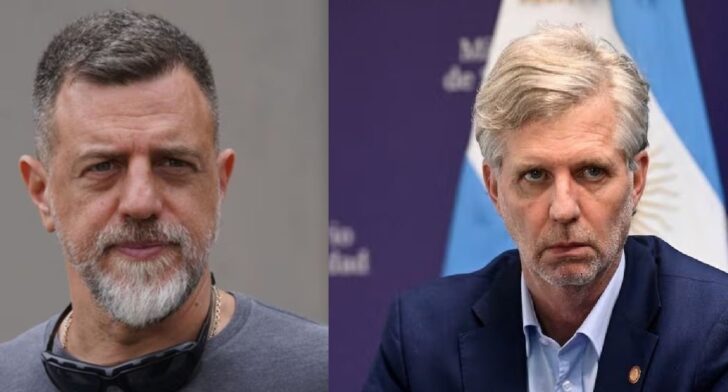We filed a criminal complaint against Sergio Neiffert, head of the State Intelligence Secretariat (SIDE), and Diego Kravetz, the SIDE’s director-general of Operations, for abuse of authority. This complaint refers to their responsibilities in approving a National Intelligence Plan and issuing an operational order that enables the SIDE to “identify and monitor” all the “vulnerable social groups” in Argentina and those actors that can capitalize on “growing political polarization to expand their influence” among the local electorate.
A substantial share of intelligence activities, which are essentially secret, would be shifted to surveilling and characterizing the public conversation, in other words, what is being said and how it is being said in the media and on social networks. Under the National Plan, opinions start to resemble a threat when “they promote conflict” – which, it is worth noting, is common practice by authorities and groups sympathetic to the government – or when they erode “trust” in economic institutions or the reputation of companies operating in the country.
The scope of intelligence activities is vast and is vaguely defined. According to this plan, they can monitor “actors of interest,” “strategic actors,” “non-state actors,” actors who have the ability to “manipulate the perception” of people or who promote social fragmentation – without any explanation regarding what those adjectives mean or whether those concepts have any limits. Their concrete and operational definition is in the hands of SIDE officials: they are the ones who will define who embodies a threat. The National Plan enables the secret surveillance of expressions of political opposition in the public arena, but also of social leaders, economists, journalists, academics, artists and any other critical voice.
All these activities are in open violation of National Intelligence Law No. 25.520. That is why in the complaint we filed, we request (in addition to a series of evidentiary measures to clarify these matters) that it be determined whether concrete actions were already taken based on the operational order and the National Intelligence Plan, so that the resulting criminal liability can be defined.
The National Plan contains “Strategic Guidelines” and “Overall Intelligence Objectives,” which are broken down into “Specific Intelligence Objectives” and even further into “Intelligence Needs.”
The Intelligence Needs of Specific Intelligence Objective 5 under Strategic Guideline 3, for example, enable the surveillance of political and social activities and expressions deemed to be threats or to be in the process of radicalization. If we look to government officials’ measures or statements to understand what these threats might be, we can refer back to last year, when the government used these kinds of terms to speak about protesters and anarchist or anti-Fascist groups in a prejudicial and stigmatizing way. Specific Intelligence Objective 6 under this same Strategic Guideline is focused on “potential negative impacts on the development of the National Defense system,” and the suspects there could be human rights organizations such as our own.
The National Intelligence Plan broadens the concept of terrorism in a very dangerous way. Activities and people could be placed under surveillance due to their ideological orientation or their past demands. The umbrella is so wide-open that it would enable the surveillance of public demonstrations and protests that could be an “opportunity” for terrorist activity. The plan identifies “anarchist terrorism” as the main target, which can lead to ideological persecution: expressing anarchist ideas would be enough to get put on a watch list.
The Intelligence Plan is also focused on tracking socioenvironmental conflicts and monitoring both environmental activism as well as indigenous peoples – groups that strive to protect cultural and/or sacred heritage. Attention is put on situations and actors with a capacity for political advocacy or for obstructing extractive projects, that can affect the “extraction, transportation and/or commercialization” of strategic natural resources. It also incorporates the objective of monitoring the international forums or entities – such as rights-protection systems or public and private international cooperation – that could intervene in the face of “extreme climate events, the degradation of the ecosystem and biodiversity loss.” Those promoting action to avert these consequences of an extraction-based production model are considered to be “adverse to the national interest.”
Although the national government has denied this in a brief press release, it is in fact enabling the agencies that make up the National Intelligence System to carry out activities to identify, track, monitor, search for, produce and store information on people and groups for political reasons. This is illegal, and the state must be held to account.

